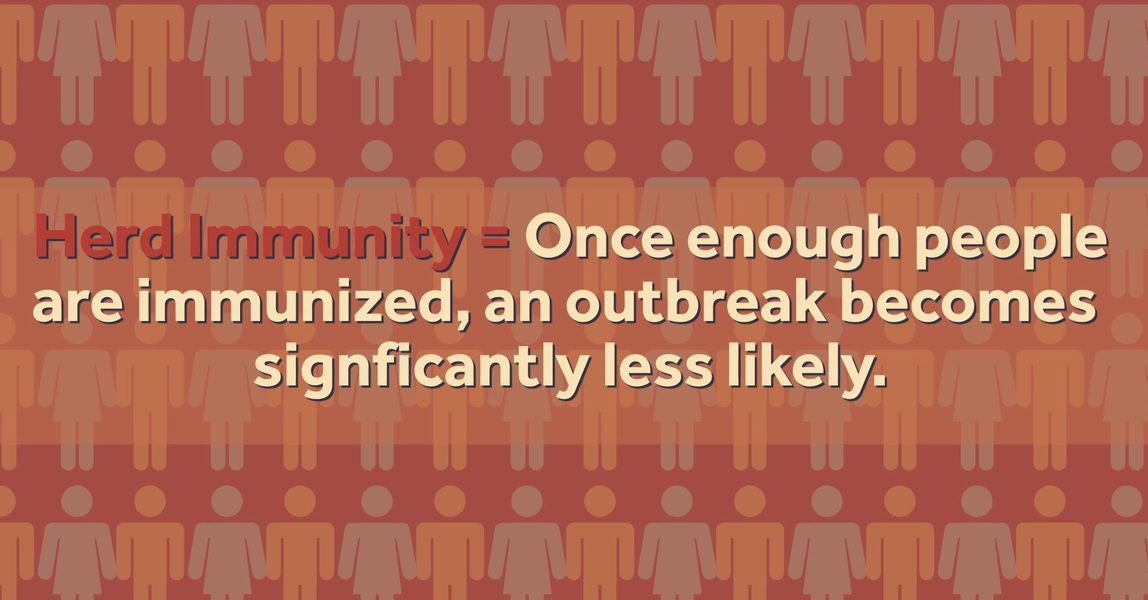Herd immunity: how vaccines protect the unvaccinated


A free daily email with the biggest news stories of the day – and the best features from TheWeek.com
You are now subscribed
Your newsletter sign-up was successful
Vaccines are a fundamental building block of modern public health, and everyone who can should get them. But some people can't be vaccinated — very young babies, the elderly, or people who have allergies, depending on the particular vaccine. However, a rigorous vaccination program can still protect those people.
How? As Aaron Carroll explains below, it's all about the statistics of disease. In order for an outbreak to spread, there must be a transmission mechanism — typically, another person who catches the disease and then gives it to someone else. But if there are enough people who are immune to the disease surrounding the sick person, then the outbreak can't get going.
For example, chicken pox used to kill a few children each year. But after the chicken pox vaccine became ubiquitous, the death rate for babies under one year of age plummeted, all the way to zero between 2004-2007 — and kids that young aren't even old enough to receive the vaccine! Ubiquitous vaccination made it so those babies weren't exposed to the disease, and thus saved many lives. Check out the full explanation in the video below. --Ryan Cooper
The Week
Escape your echo chamber. Get the facts behind the news, plus analysis from multiple perspectives.

Sign up for The Week's Free Newsletters
From our morning news briefing to a weekly Good News Newsletter, get the best of The Week delivered directly to your inbox.
From our morning news briefing to a weekly Good News Newsletter, get the best of The Week delivered directly to your inbox.
A free daily email with the biggest news stories of the day – and the best features from TheWeek.com
Ryan Cooper is a national correspondent at TheWeek.com. His work has appeared in the Washington Monthly, The New Republic, and the Washington Post.
